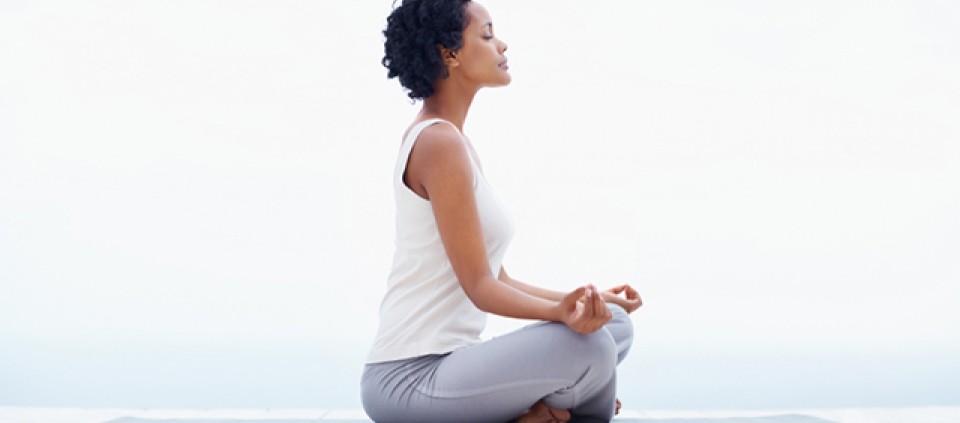Meditation for Better Relationships

Meditation has long been celebrated for all it can do for us—lower blood pressure, reduce stress, help us sleep, and possibly help us lose weight. But a recent study also found that meditation might help us be better friends and partners. Researchers at Emory University in Atlanta found that many participants who had practiced eight weeks of meditation showed significant improvement in their ability to identify the emotions of people in photos based on their expressions. That is, they were more in tune with the feelings of others.
“Many of us carry around a filter of how the world is, and how other people are,” says Kripalu faculty member and yoga researcher Angela Wilson. “Sometimes that means we make global assessments about how people think about us—that we’re not good enough, we’re too overbearing, or whatever else. We then project those feelings onto others, as in, they think I am this or that.“ Mindfulness meditation, in turn, helps us break down those filters so that we see things as they are, instead of how we may have been conditioned to see them.
How does it work, exactly? We know that meditation is a practice of watching what’s happening moment to moment, without judgment or preference. “And getting to know our own reactions more—physically, emotionally, and mentally—is a huge tool, not only for aiding our own well-being, but also for fostering insight and understanding for the experiences of others,” says Angela. “Seeing things more clearly for ourselves helps us see others more clearly, which almost always increases our empathy and connection to them.” She cites a recent example from her own life when a friend came to visit. “I was in the kitchen and she came out to get some food,” says Angela. “She didn’t say anything, but I could feel she was upset. My body was tense, my heart rate was up; I was scared. Because one of my filters is to think someone is angry with me when they don’t speak, my first instinct was to create a story. I told myself she was mad at me.”
But not for long. “I very quickly called on my meditation practice, and stopped to notice how I felt,” she says. “Then I applied that quality of non-preferential attention to my friend.” Instead of assuming something about the other person’s experience, which was Angela’s habit, she became curious: What was actually going on? “The shift in how I saw her changed the whole situation for me,” says Angela. “I was able to respond to her, and myself, more skillfully because I had had the awareness to pause, notice, and observe my friend with fewer of my own filters.” Perhaps not surprisingly, the friend, it turns out, was not upset with Angela at all.
Of course, like any skill, using meditation to better connect with others is one that gets better with practice. Some ways to get started, both on and off the cushion:
On the Cushion
Commit to noticing, without preference. Try sitting for a predetermined amount of time—even if it’s just for a few minutes. This will help you stay with your practice even if difficulties arise. Over time, you will become familiar with those difficulties and the emotions and sensations they generate, and this familiarity will start to increase your capacity for understanding yourself and others.
Off the Cushion
Practice mindfulness in everyday conversation. When someone is talking, really pay attention to what they’re saying. What words are they using? Notice their facial expressions. What does their face look like? Be curious. At first this might feel intrusive, so practice with a kind, friendly gaze and with the intention that you’re genuinely interested in the experience they’re having. The rest will come naturally.
Find out about upcoming programs with Angela Wilson at Kripalu.
© Kripalu Center for Yoga & Health. All rights reserved. To request permission to reprint, please e-mail editor@kripalu.org.
Angela Wilson, LMHC, RYT 500, is a Kripalu faculty member who has conducted research and written about the intersection between yoga, Western psychology, and science.
Full Bio and Programs